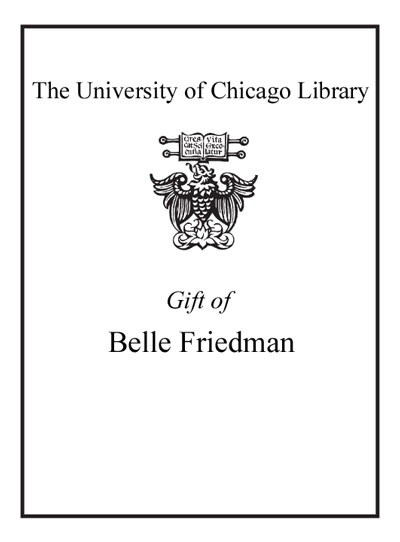Review by Booklist Review
After 16 months in an Inquisition jail, Casanova crashes in the South Tyrol town of Bolzano, and within days he is back to his legendary exploits: borrowing, gambling, and, of course, seducing. Enter an aged duke--who years ago banished the lover, bleeding from his heart, after a duel over the lovely Francesca--with an indecent proposal. Spend a night with her, the duke asks Casanova, and then hurt her, so she will finally forget her unrequited love and remember her wealthy husband instead. But is it really as easy to forget as it is to seduce? And what does the seducer really know about love, anyhow? The second of Marai's rediscovered Hungarian jewels to be translated into English, this selection builds to an intimate, deliberate climax that showcases the author's considerable psychological discernment in matters of the heart. It also sneaks in just a pinch of clever modernist commentary on writing, performance, and personal duplicity. Captivating, lyrical, and, yes, seductive. --Brendan Driscoll Copyright 2004 Booklist
From Booklist, Copyright (c) American Library Association. Used with permission.
Review by Publisher's Weekly Review
October 31, 1756: the incorrigible playboy and roving gambler Giacomo Casanova escapes from a pestilent Venetian prison. Aiming for Munich, he stops near the Austrian border at an inn in Bolzano. The imperious septuagenarian duke of Parma, Casanova's victorious former rival for the hand of Francesca-then a teenager, now the duchess of Parma, and still in love with Casanova-just happens to live nearby. To prevent another duel, the duke blackmails the legendary womanizer: either he seduces Francesca, breaks her heart and leaves, thereby curing her of the "infection" that is Casanova, or he risks being killed or turned in to the authorities. The fervent colloquy echoes the centerpiece tete-a-tete that structures Embers, Marai's only other novel to be translated into English. Unlike Embers, however, this book fizzles out; an austere and poignant exposition on the inexorability of fate that has been building for over 200 pages collapses into an intolerably tedious, long-winded rant by Francesca as she tries to persuade Casanova to run away with her. The harangue makes it hard to believe that anyone would fight over her and makes the reader wonder why another Marai (1900-1989) work was not translated before this one. (Nov. 11) Forecast: The 75,000 first printing may be ambitious, but a small trim size and elegant jacket make this a nice-looking Christmas pick. (c) Copyright PWxyz, LLC. All rights reserved
(c) Copyright PWxyz, LLC. All rights reserved
Review by Library Journal Review
Having been rediscovered with Embers, Marai, born in Austro-Hungary in 1900, returns with a reimagining of Casanova. (c) Copyright 2010. Library Journals LLC, a wholly owned subsidiary of Media Source, Inc. No redistribution permitted.
(c) Copyright Library Journals LLC, a wholly owned subsidiary of Media Source, Inc. No redistribution permitted.
Review by Kirkus Book Review
The legendary lover is the beleaguered antihero of this hitherto untranslated 1940 novel. Hungarian expatriate author Márai (1900-89), best known here for his small masterpiece Embers (1942; Eng. trans. 2001), begins with Giacomo Casanova's 1756 escape from a notorious Venetian prison ("the Leads"), accompanied by a dissolute friar (Balbi) who poses as his "secretary" while the pair take refuge in the village of Bolzano. The reader is immediately struck by Márai's elegant style (smoothly rendered by veteran translator Szirtes): lengthy, crowded serpentine sentences that create the impression of a hurtling, impatient intelligence eager to communicate all it has experienced and absorbed. And this is Casanova: a libertine intellectual, persecuted for "immorality" (specifically, for seducing prominent men's women), who views himself as an artist gathering raw material for eventual self-expression ("I am that rare creature, a writer with a life to write about!"). Alas, the story developed from this promising premise is redundant, turgid, and dull. Márai piques our interest when Bolzano's women crowd around the notorious stranger's bedroom door, watching through a keyhole as he sleeps--and when his hopeful seduction of a semi-innocent teenaged maid is interrupted by Balbi. But Márai drones on inexcusably when Casanova reiterates his love-hate relationship with Venice (his birthplace), crafts an appeal for money to an indulgent patron, and matches wits with the aged Duke of Parma, who had bested Casanova in a duel fought over beauteous Francesca (now Duchess of Parma)--and who offers his former rival the ultimate challenge. If Casanova will create his "masterpiece of seduction," thus relieving Francesca of her lingering obsession with him and releasing her from his spell, the libertine will be handsomely rewarded and his life spared again. All this, as well as Casanova's reunion with Francesca and his response to the Duke's challenge, is spelt out at interminable length. Embers was the work of a master of concision and irony. This is self-indulgent rant. Copyright ©Kirkus Reviews, used with permission.
Copyright (c) Kirkus Reviews, used with permission.
Review by Booklist Review
Review by Publisher's Weekly Review
Review by Library Journal Review
Review by Kirkus Book Review

